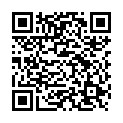|
|
|
| Module code: BAME18-09 |
|
|
6S (6 hours per week, accumulated) |
|
7 |
| Semester: 3 |
| Duration: 2 semester |
| Mandatory course: yes |
Language of instruction:
German |
Assessment:
Exam achievement: Written exam
[updated 01.10.2020]
|
BAME18-09 (P311-0065, P311-0066) Health care management, Bachelor, ASPO 01.10.2018
, semester 3, mandatory course
|
90 class hours (= 67.5 clock hours) over a 15-week period.
The total student study time is 210 hours (equivalent to 7 ECTS credits).
There are therefore 142.5 hours available for class preparation and follow-up work and exam preparation.
|
Recommended prerequisites (modules):
BAME18-03 Public Health I
BAME18-05 Academic Methodologies and Study Skills I
[updated 22.08.2017]
|
Recommended as prerequisite for:
|
Module coordinator:
Prof. Dr. Iris Burkholder |
Lecturer:
Prof. Dr. Iris Burkholder
Prof. Dr. Martha Meyer
[updated 22.08.2017]
|
Learning outcomes:
Epidemiology:
After successfully completing this module, students will understand essential epidemiological measures for measuring disease incidence and be able to calculate them. They will be familiar with different epidemiological study designs and their specific risk estimators. Students will be able to calculate and assess the appropriate estimators and their confidence intervals. They will study the assessment of systemic and random error sources in epidemiological studies and address the problem of causality assessment. Students will be able to describe and graphically represent the distribution of data based on essential parameters. They will be familiar with spatial and temporal monitoring in the context of health reporting and the basic epidemiological data of important diseases (e.g. cardiovascular diseases and cancer).
Transitions in the Course of Life - Social and Health Science Perspectives:
The seminar examines the status passages of selected social groups from a social and health science perspective - e.g. children, young people, older people, migrants, single parents, etc. - in their respective biographical contexts of life and to what extent these contribute to the emergence of problems and crises and to the vulnerability of certain social groups Theoretical examination of concepts of transitions in the course of life. Reflection on the social processes of a permanently changing life course. Researching, processing, and critically discussing the influencing and formative determinants for different stress situations. Discussion about approaches and intervention possibilities that accompany biopsychosocial adaptation and compensation processes and offer support during the transition from one passage to another.
[updated 01.10.2020]
|
Module content:
Epidemiology:
1. Basic epidemiological indicators
2. Descriptive, analytical and experimental study designs
3. Risk estimator (odds ratio; relative risk)
4. Description and graphical representation of data (location dimensions, dimensions of variability)
5. Standard errors and confidence intervals
6. Causality criteria
7. Random and systematic errors
8. Quality criteria of diagnostic tests
9. Screening procedures
10. Health reporting
Transitions in the Course of Life - Social and Health Science Perspectives:
1. Theoretical concepts on transition and status passage in the life course
_ Ecopsychology, stress concepts, life-span approach
2. Inequality and health resources
_ Importance of social networks/social support; social capital,
_ expectations of self-efficacy)
3. Inequality and health behavior
_ Inequalities in morbidity and mortality
4. Health significance of specific social situations
_ Children/youth, gender, migration, the elderly, single parents, unemployment)
5. Inequality and social injustice
[updated 01.10.2020]
|
Teaching methods/Media:
Print and electronic media, slides
[updated 01.10.2020]
|
Recommended or required reading:
Epidemiology:
_ Bardehle D, Annuß R (2012). Gesundheitsberichterstattung. In: K. Hurrelmann K, Razum O (Hg) Handbuch Gesundheitswissenschaften. Weinheim, Basel: Juventa, S. 403-440
_ Bonita R, Beaglehole R, Kjellström, T (2013). Einführung in die Epidemiologie. 3.korr. Aufl. Bern: Huber
_ Kreienbrock L, Schach S (2012). Epidemiologische Methoden. 5. Aufl. Heidelberg: Springer Spektrum
_ Razum O, Breckenkamp J, Brzoska P (2011). Epidemiologie für Dummies. Weinheim: Wiley
_ Statistisches Bundesamt (jeweils aktuell). Gesundheitsberichterstattung des Bundes. Online verfügbar unter: http://www.gbe-bund.de/ (Aufruf 23.11.2015)
Transitions in the Course of Life - Social and Health Science Perspectives:
_ Bauer U, Bittlingmayer U, Richter M (Hg) (2009). Health Inequalities: Determinanten und Mechanismen gesundheitlicher Ungleichheit. Wiesbaden: VS-Verlag
_ Filipp SH (Hg). (1990). Kritische Lebensereignisse. Psychologie- München: Verlags Union
_ Geißler R (2008). Die Sozialstruktur Deutschlands. 4. Aufl. Wiesbaden: VS
_ Helmert U, Bammann K, Voges W, Müller R (Hg) (2000). Zum Stand der Forschung: Soziale Ungleichheit und Gesundheit. Weinheim und München: Beltz Juventa
_ Hodek JM, Ruhe A, Greiner W (2009). Gesundheitsbezogene Lebensqualität bei Multimorbidität im Alter. Bundesgesundheitsblatt 2009 (52)
_ Lampert T, Ziese T (2006). Armut, soziale Ungleichheit und Gesundheit. Expertise des Robert Koch-Instituts zum 2. Armuts- und Reichtumsbericht der Bundesregierung. Berlin: Robert Koch-Institut
_ Mielck A (2005). Soziale Ungleichheit und Gesundheit. Einführung in die aktuelle Diskussion. Bern: Hans Huber
_ Richter M, Hurrelmann K (Hg) (2009). Gesundheitliche Ungleichheit. Grundlagen, Probleme Perspektiven. 2. Aufl. Wiesbaden: VS
_ Ruppe G (2001). Active Ageing and prevention in the Context of Long-Term Care. Policy Brief July 2001. European Centre For Social Welfare Policy and Research, Vienna
_ Siegrist J (2005). Medizinische Soziologie. München: Urban & Fischer
Additional literature will be announced in the course.
[updated 01.10.2020]
|


